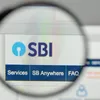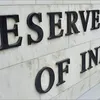Indian Bank to link retail and MSME loans to RBI's repo rate from October 1
Several banks, including State Bank of India, have already announced to link their loan products with external benchmarks from next month.

State-owned Indian Bank on Wednesday said it has decided to link all new floating rate retail as well as MSME loans with the Reserve Bank of India's (RBI) repo rate, effective October 1, 2019.
"In conformity with the RBI guidelines dated September 4, 2019, on External Benchmark Based Lending, the bank has decided to link all new floating rate loans to personal or retail segment and new floating rate loans to micro and small enterprises (MSE), to Reserve Bank of India policy Repo Rate with effect from October 1, 2019," according to a BSE filing.
On September 4, the Reserve Bank of India (RBI) had mandated all banks to link all new floating rate personal or retail loans and floating rate loans to micro, small and medium enterprises (MSMEs) to an external benchmark from October 1 onwards.
The move is aimed at faster transmission of rate cuts effected by it to consumers.
Several banks, including State Bank of India, have already announced to link their loan products with external benchmarks from next month.
SBI has also extended the external benchmark-based lending to medium enterprises, to boost lending to the MSME sector as a whole.
It had introduced floating rate home loans effective July 1, 2019, but has made some modifications in the scheme effective October 1, 2019, to comply with the latest regulatory guidelines.
The RBI gave the banks options to benchmark their floating rate loans either to repo rate, three-month, or six-month treasury bills or any benchmark market interest rate published by Financial Benchmarks India Private (FBIL).
The move came after industry and retail borrowers complained that banks do not pass on the entire RBI's policy rate (repo rate) reduction to them.
However, Moody's Investors Service had said the move is credit negative to the lenders as it would limit their flexibility in managing risks.
"This is credit negative for India's banks as it will limit their flexibility in managing interest rate risk," Moody's said in a statement.









